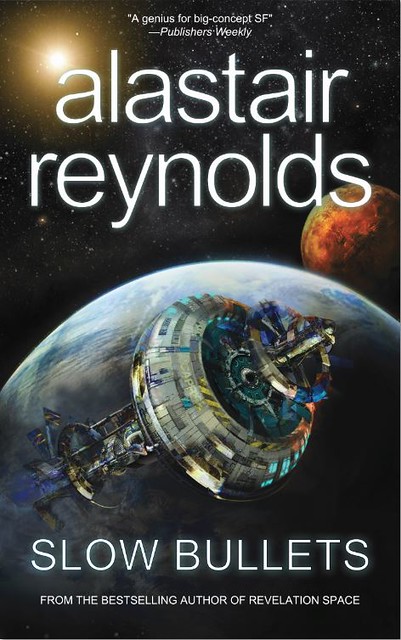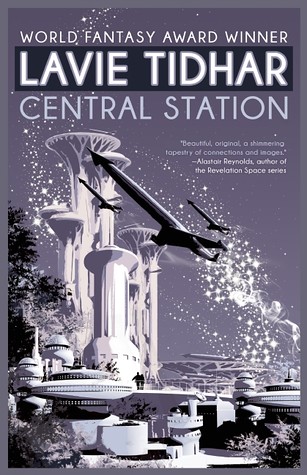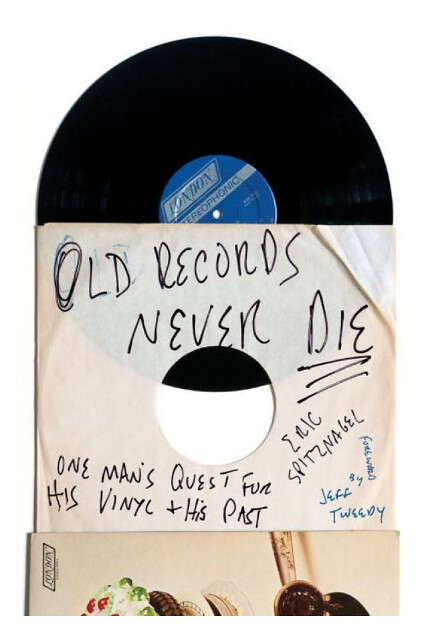 I was fortunate to have worked on Slow Bullets
I was fortunate to have worked on Slow BulletsThe winners of the Locus Awards will be announced during the Locus Awards Weekend in Seattle, WA, June 24-26, 2016; Connie Willis will MC the awards ceremony. Here is the complete list of the Locus Award finalists, including details on the awards weekend.
The 2016 Hugo Awards will be presented on the evening of Saturday, August 20, during a ceremony at MidAmeriCon II, the 74th World Science Fiction Convention, in Kansas City, MO. Here is the complete list of the Hugo Award finalists, including voting numbers.
I'd like to quote a paragraph from my June 8, 2015, blog post:
If you are unfamiliar with the various works of author Alastair Reynolds, then Slow Bullets would be the perfect starting point. If you read Alastair Reynolds already, preferring his longer novels and series work -- still, don't deny yourself the pleasure of reading this story, as Slow Bullets has more ideas than some novels that are twice its length.
And to further that aim (and to help promote the novella), here are my previous blog posts, in order of publication, on Slow Bullets:
February 9, 2015: Editing in Process...Slow Bullets by Alastair Reynolds
May 29, 2015: Now Shipping: Slow Bullets by Alastair Reynolds [includes quotes from Michael Bishop and Michael Swanwick]
June 1, 2015: Alastair Reynolds on the Genesis of his story Slow Bullets
June 8, 2015: "The pace of the novella is never less than breakneck": a review of Slow Bullets by Alastair Reynolds [from Green Man Review]
July 21, 2015: "Some readers may find themselves thrown off balance by the juxtaposition of beauty and ugliness—" [from the Los Angeles Review of Books]
October 21, 2015: Book Received: Slow Bullets Limited Edition by Alastair Reynolds [includes the Strange Horizons review]
And if you haven't gotten the hint yet, you should consider purchasing a copy of Slow Bullets, which is available from Amazon , or from any other fave bookseller.
, or from any other fave bookseller.


